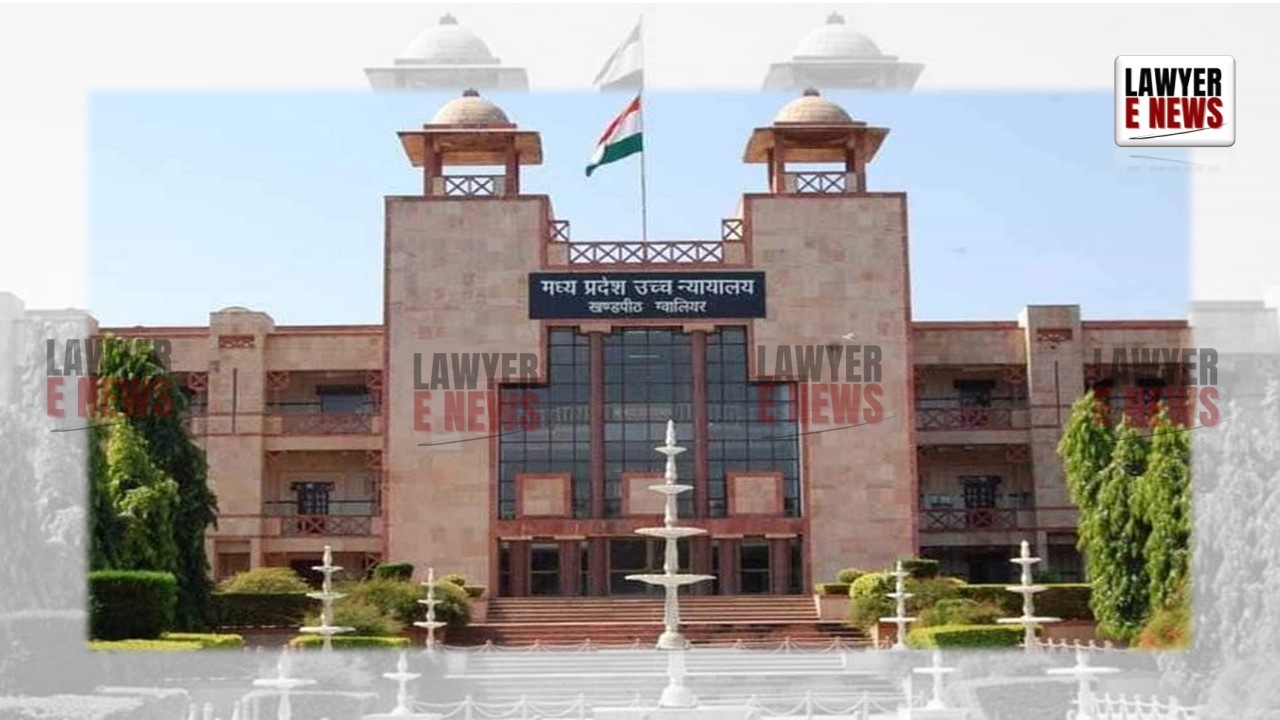-
by Admin
15 February 2026 2:36 AM



Mere Past Grievances with the Accused Do Not Confer the Right to Intervene in a Criminal Case - In a recent judgement, Madhya Pradesh High Court addressing the issue of third-party interventions in criminal cases. The Court clarified that a third-party objector seeking to intervene under Section 301(2) of the Code of Criminal Procedure (CrPC) or Section 339 of the BNSS Act must establish a bona fide connection to the cause of action.
Dismissing the objection raised by a third-party objector, the Court held that mere past grievances or unrelated disputes with the accused cannot form the basis of locus standi to intervene in ongoing criminal proceedings. The ruling reinforces judicial safeguards against frivolous litigation and protects the integrity of criminal trials.
The case originated when the applicant, Ismile Shah, faced criminal charges initiated by a complainant under the provisions of the BNSS Act and the IPC. A third-party objector sought to intervene under Section 301(2) CrPC and Section 339 of the BNSS Act, claiming that they were a prior victim of the applicant in unrelated cases.
The applicant challenged the maintainability of the objection, arguing that the objector had no locus standi in the current proceedings as they were not connected to the ongoing case. The applicant also contended that the objector was known for filing frivolous cases against multiple individuals to pressurize them for personal gain.
What constitutes locus standi for third-party objectors in criminal cases under Section 301(2) CrPC and Section 339 BNSS?
Whether a past victim of the accused can claim victim status under Section 2(y) of the BNSS Act for unrelated criminal proceedings.
What safeguards are needed to prevent misuse of third-party interventions in criminal cases?
The Court highlighted the principle of locus standi, stating:
"The term locus standi refers to the right or capacity to bring an action or appear in a court. Traditionally, only those directly affected or aggrieved by a cause of action have standing to approach the court."
The Court relied on the Supreme Court judgment in Amanullah and Anr. v. State of Bihar and Ors. [(2016) 6 SCC 699], which held that third-party objections must be justice-oriented and supported by a bona fide connection to the case at hand.
Applying this principle, the Court found that the objector failed to demonstrate any bona fide connection with the cause of action in the current proceedings. The objector’s previous disputes with the accused, unrelated to the present case, were deemed insufficient to establish locus standi.
The Court analyzed Section 2(y) of the BNSS Act, which defines a “victim” as someone who suffers loss or injury due to the act or omission forming the subject of prosecution. The Court clarified:
"Past disputes or unrelated grievances with the accused do not confer victim status for the current proceedings. The victim must have suffered loss or injury due to the specific act being prosecuted in the present case."
The objector’s reliance on past grievances failed to meet this standard, leading the Court to reject their claim of victimhood under Section 2(y) of the BNSS Act.
The Court expressed concern that allowing individuals with past grievances to intervene in unrelated criminal proceedings would lead to a floodgate of litigation. It emphasized:
"If every past victim of an accused were permitted to intervene in all subsequent cases, it would result in unmanageable litigation, diverting focus from the specific cause of action at hand."
The Court underscored the importance of maintaining a direct nexus between the objector and the cause of action to preserve the efficiency and fairness of the judicial process.
The High Court dismissed the objection filed by the third-party objector for lack of locus standi, stating:
"The objector, having no bona fide connection with the cause of action in the present case, cannot be permitted to intervene. Mere past grievances with the accused are insufficient to confer locus standi in unrelated criminal proceedings."
The Court also vacated any interim relief granted earlier and listed the matter for further hearing on the merits of the case.
Third-party interventions under Section 301(2) CrPC or Section 339 BNSS require a demonstrable bona fide connection to the cause of action in the current proceedings.
The definition of “victim” under Section 2(y) of the BNSS Act is restricted to those who suffer loss or injury due to the specific act or omission forming the subject of prosecution.
Allowing interventions by individuals with past grievances unrelated to the present case risks opening the floodgates to frivolous litigation. Courts must ensure a direct nexus to the cause of action before permitting third-party objections.
The Court relied on established precedents, including Amanullah v. State of Bihar, to emphasize the justice-oriented approach to third-party interventions in criminal trials.
The Madhya Pradesh High Court’s judgment reinforces the principle that third-party objectors in criminal proceedings must establish a genuine connection to the cause of action. By narrowing the definition of locus standi and victimhood, the Court aims to safeguard the judicial process from unnecessary interventions and preserve the focus on the specific acts under prosecution.
Date of Decision: 18 December 2024
